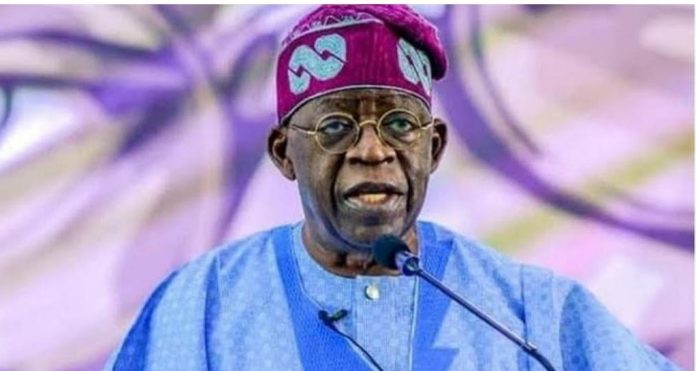President Bola Tinubu reiterates his administration’s rationale for ending the fuel subsidy program, arguing that maintaining it would have led the country into financial ruin.
It would be recalled that he announced the subsidy’s removal during his inaugural address on May 29, 2023, with his well-known “subsidy is gone” declaration.
Subsequently, the price of petrol skyrocketed from ₦180 to over ₦600, causing a rapid increase in commodity prices.
This development exacerbated the hardships faced by citizens, prompting some critics to condemn the subsidy’s removal as a hastily implemented policy.
However, speaking as a panelist at the ongoing World Economic Forum (WEF) in Riyadh, Saudi Arabia on Sunday, April 28, 2024, Tinubu stood firm, asserting that ending the fuel subsidy was imperative to prevent national bankruptcy.
“For Nigeria, we are immensely consistent with belief that the economic collaboration and inclusiveness is necessary to engender stability in the rest of the world.
“Concerning the question of the subsidy removal, there is no doubt that it was a necessary action for my country not to go bankrupt, to reset the economy and pathway to growth.
“It is going to be difficult, but the hallmark of leadership is taking difficult decision at the time it ought to be taken decisively. That was necessary for the country. Yes, there will be blowback, there is an expectation that the difficulty in it will be felt by greater number of the people, but once I believe it is their interest that is the focus of the government, it is easier to manage and explain the difficulties.
“Along the line, there is a parallel arrangement to really cushion the effect of the subsidy removal on the vulnerable population of the country. We share the pain across board, we cannot but include those who are vulnerable.
“Luckily, we have a very vibrant youthful population interested in discoveries by themselves and they are highly ready for technology, good education committed to growth. We are able to manage that and partition the economic drawback and the fallout of subsidy removal,” he added.

